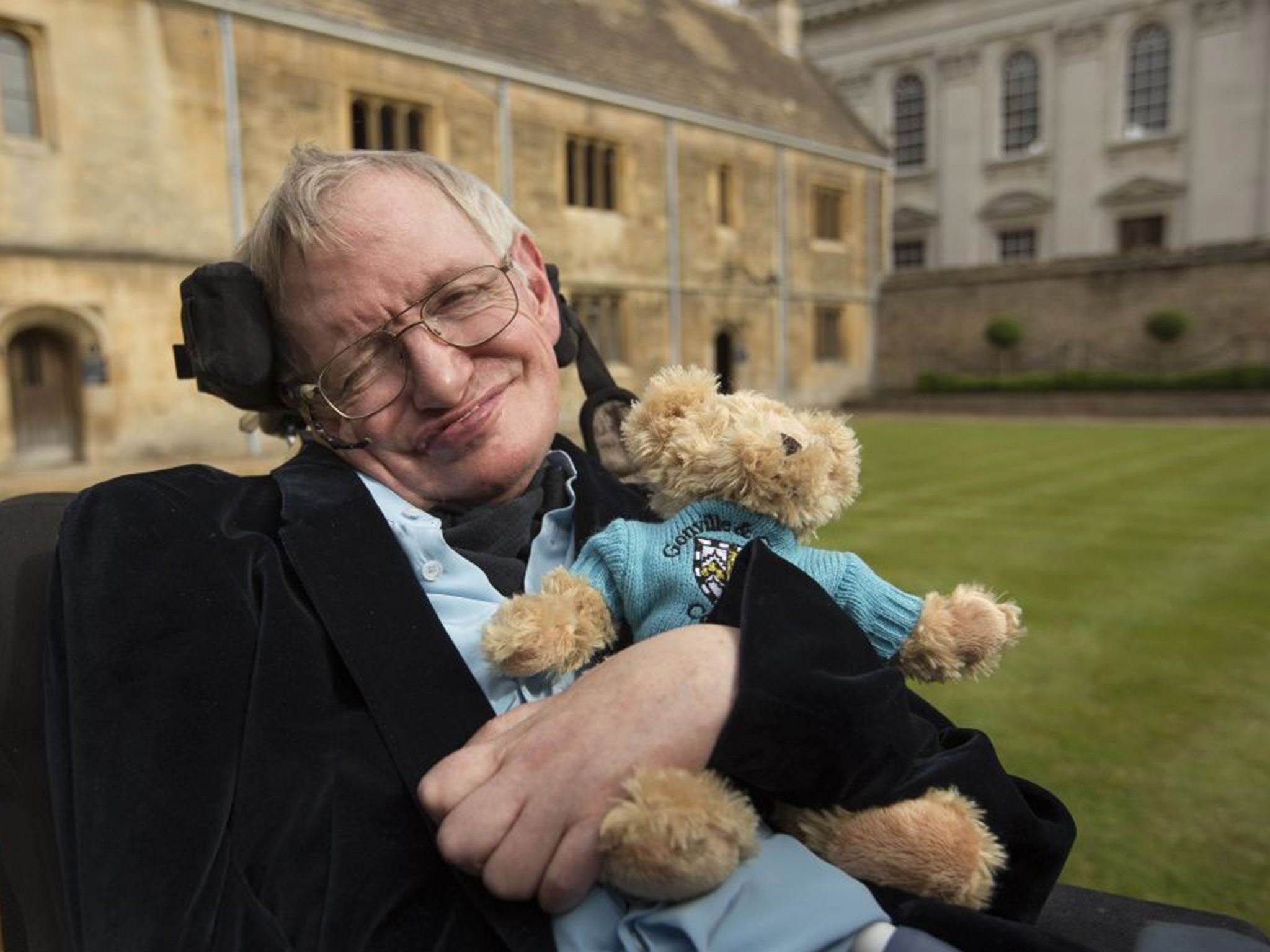Stephen Hawking: 'I'd consider assisted suicide'
The professor of physics has said that denying terminally ill people the right to die is 'the ultimate indignity'

Your support helps us to tell the story
From reproductive rights to climate change to Big Tech, The Independent is on the ground when the story is developing. Whether it's investigating the financials of Elon Musk's pro-Trump PAC or producing our latest documentary, 'The A Word', which shines a light on the American women fighting for reproductive rights, we know how important it is to parse out the facts from the messaging.
At such a critical moment in US history, we need reporters on the ground. Your donation allows us to keep sending journalists to speak to both sides of the story.
The Independent is trusted by Americans across the entire political spectrum. And unlike many other quality news outlets, we choose not to lock Americans out of our reporting and analysis with paywalls. We believe quality journalism should be available to everyone, paid for by those who can afford it.
Your support makes all the difference.Stephen Hawking has said he would consider assisted dying if he became a "burden" to his family.
In an interview with comic Dara Ó Briain, Hawking said that people should have the right to end their own lives.
Hawking, who has motor neurone disease, says he would consider ending his own life if he was struggling.
"I would consider assisted suicide only if I were in great pain or felt I had nothing to contribute, but was just a burden to those around me," he told Ó Briain. The Telegraph reports that the interview took place as part of a new BBC programme.
The renowned physicist, who has advanced the theories of relativity and quantum mechanics, is largely paralysed from his illness. He communicates with a speech-generating device attached to a single cheek muscle.
Hawking added he's not planning on giving up any time soon, saying: "I am damned if I’m going to die before I have unravelled more of the universe."
Speaking of the hardships of living with motor neurone disease, Hawking said it can be lonely not being able to communicate in the same way as many other people.
"At times I get very lonely because people are afraid to talk to me or don’t wait for me to write a response," he said.
"I’m shy and tired at times. I find it difficult to talk to people I don’t know."
Hawking has previously spoken about the dignity of disabled people. In March, Hawking said that "not being able to communicate is one of the most frightening and isolating aspects of living with motor neurone disease."
He added: "Everyone with MND should be able to access speech and language therapy and the range of communication equipment technology which is out there. No one should die without a voice."
The physicist was the subject of Oscar-winning film The Theory of Everything, which starred Eddie Redmayne.
Join our commenting forum
Join thought-provoking conversations, follow other Independent readers and see their replies
Comments